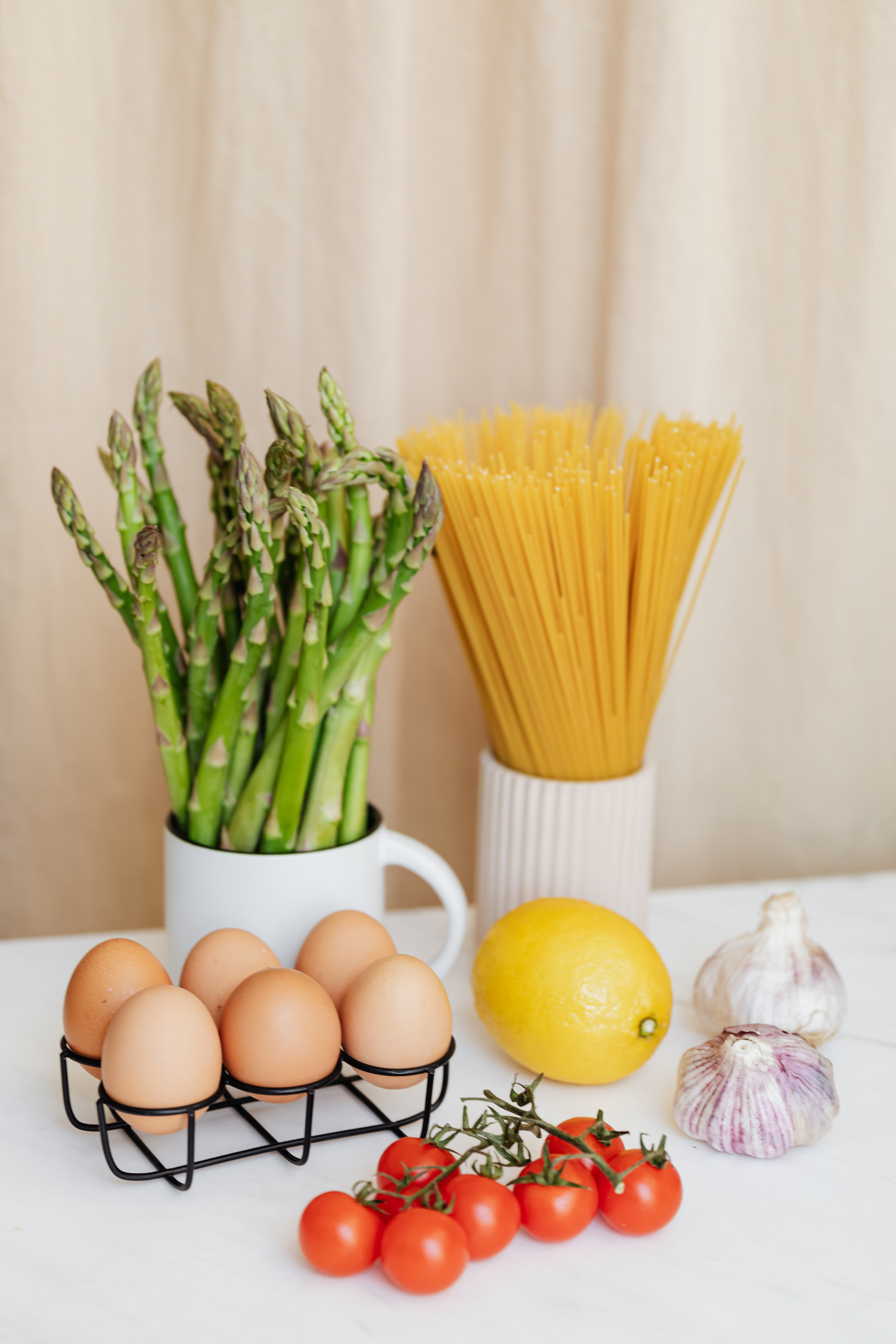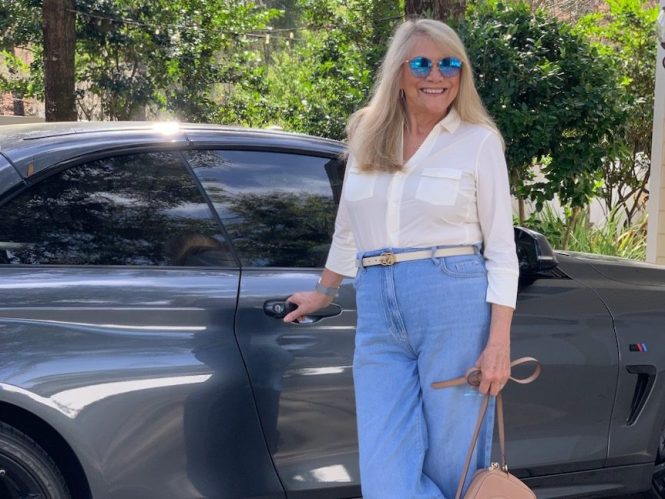I had a bit of a wake-up call recently when I got the results of private well woman blood tests. The doctor's analysis told me that my ferritin, a marker of iron stores, was high. The doctor wrote that it was possibly due to a high dietary intake of iron, or taking iron supplements.
I checked the bottles of the multi-vitamins and other supplements I was taking. The recommended daily intake for a woman over 50 is 8.7mg, but my pills were giving me more than 20mg. And that was without taking into account my relatively healthy diet.
Good sources of iron are found in the following which feature in my diet: red meat, beans and legumes, eggs, nuts and dried fruit.
Too much iron in the blood is stored in our organs, especially the liver, heart and pancreas, and can lead to life-threatening conditions, such as liver disease, heart problems and diabetes.
What aren't we being told about vitamins?
On the plus side, my blood test showed I had healthy levels of vitamin D (probably due to the frequent walks I do) which is the trendy vitamin de jour. The NHS recently changed its recommendation on vitamin D to say we should all consider taking 10 mcg/day vitamin D as a supplement, to keep our bones and muscles healthy. This advice was issued largely because of the restrictions imposed by quarantine and lockdowns.
The whole thing got me thinking about vitamins and the conflicting information we get.
Vitamins are big sellers. In the UK, the Vitamin & Supplement Manufacturing industry is worth £1.5 billion. In the US, more than one-half of Americans take herbal or dietary supplements daily according to a study by the Journal of the American Medical Association.
Warnings about over-consumption of vitamins are not new. There have been reports too that vitamins are largely ineffective. Forbes reported the findings of a study that said the vast majority of the vitamins and minerals analyzed didn’t have any measurable benefit, at least when it came to the outcomes for cardiovascular disease, stroke, and early death.
Surely we shouldn't need supplements if we have a healthy diet?
My biggest question is around taking supplements on an already healthy diet. If our diet is low in processed foods, and includes fruit, veg, whole grains, meat, dairy and eggs, low-fat protein, beans, legumes and dairy, we shouldn't need to take any supplements.
The problem is that most of us, the worried well, like to take vitamins and minerals as insurance, knowing that we don't always eat the best diet every single day.
Recommended daily intake is another issue. It's quite common for magazine articles to blithely recommend huge doses of certain vitamins. 1 gram of vitamin C is a common one, but it causes stomach upsets in most people, and any excess is immediately secreted by the body. Ever wondered why your urine is pale green after taking certain vitamin pills?
And how often do we see suggested menus that guide us on how to take all the recommended vitamins and minerals each day? Very rarely.
Here are the best vitamin sources in food, from Harvard Health:
Water soluble (these are not stored in the body)
B1: ham, soya milk, watermelon, squash; B2: milk, yogurt, cheese, whole and fortified grains and cereals; B3: meat, poultry, fish, fortified and whole grains, mushrooms, potatoes; B5: chicken, whole grains, broccoli, avocados, mushrooms; B6: meat, fish, poultry, legumes, tofu and other soy products, bananas; B7: Whole grains, eggs, soya beans, fish; B9: Fortified grains and cereals, asparagus, spinach, broccoli, legumes (black-eyed peas and chickpeas), orange juice. B-12: Meat, poultry, fish, milk, cheese, fortified soya milk and cereals; Vitamin C: Citrus fruit, potatoes, broccoli, red peppers, spinach, strawberries, tomatoes, Brussels sprouts.
Fat soluble (stored in the body)
Vitamin A: beef, liver, eggs, shrimp, fish, fortified milk, sweet potatoes, carrots, pumpkins, spinach, mangoes; Vitamin D: fortified milk and cereals, fatty fish; Vitamin E: vegetables oils, leafy green vegetables, whole grains, nuts; Vitamin K: Cabbage, eggs, milk, spinach, broccoli, kale.
Minerals: most minerals don't have a recommended daily intake. You'll find them in these foods:
Major Minerals
Calcium: yogurt, cheese, milk, salmon, leafy green vegetables
Chloride: salt
Magnesium: Spinach, broccoli, legumes, seeds, whole-wheat bread
Potassium: meat, milk, fruit, vegetables, grains, legumes
Sodium: salt, soy sauce, vegetables
Trace:
Chromium: meat, poultry, fish, nuts, cheese
Copper: shellfish, nuts, seeds, whole-grain products, beans, prunes
Fluoride: fish, teas
Iodine: Iodized salt, seafood
Iron: red meat, poultry, eggs, fruits, green vegetables, fortified bread
Manganese: nuts, legumes, whole grains, tea
Selenium: Organ meat, seafood, walnuts
Zinc: meat, shellfish, legumes, whole grains
Suggested menu for 1 day
I'm not a nutritionist or dietician, but I would be confident you'd be getting most of what's required each day in the following. I eat a low-carb diet, so I've also included how I deal with that.
Breakfast: fresh orange juice, fortified cereal with milk (cow's milk contains more calcium than nut milks) or Greek yoghurt with berries and/or dried fruit, chia seeds and nuts.
Lunch: Salad with shellfish, ham or salmon, scattered with nuts, dressed with olive oil. Banana.
Dinner: Meat or fish with sweet potato, leafy green veg, butter beans or other legumes.
Snacks: apple, tangerines, handful of nuts, kefir
If this menu strikes you as low calorie, you can augment it with wholegrains, fruit and vegetables. A soup made from vegetables and quality stock is a great way to ingest vegetables as a starter. Plus have full fat versions of everything. I never eat "low fat" yoghurt or other foods because the fat has been substituted with sugar or sweeteners usually, which is far worst for us.
Low-carb alternative menu
Breakfast: 2 poached eggs on half a slice of toasted sourdough with Marmite (add spinach if you can stomach it) or eggs, bacon rasher, grilled mushrooms and a roasted tomato.
Lunch: salad with feta cheese, pomegranate seeds, nuts, leaves, tomatoes, radishes, beetroot, orange slices; or fill a large sundae glass with layers of frozen forest berries, toasted nuts and full-fat Greek yoghurt, with a couple of prunes on top (I love this).
Dinner: chicken or fish with quinoa, broccoli, butter beans, cauliflower cheese.
Snacks: houmous with crudites, Greek yoghurt with berries, kefir, handful of nuts.
What's trendy: "Bio Hackers"
Most fitness gurus have moved on from vitamins and they're consuming supplements that encourage our body's cells to regenerate faster: antioxidants and anti-inflammatory herbs and spices. To be fair there's very little evidence based science around these (or indeed around vitamins).
Liz Earle is a fitness guru I admire very much. On on her website she describes what she takes, with discount codes. If I was to take everything she uses, it would cost hundreds of pounds a month, so I have to be selective.
What I take now
I'll be writing about the pros and cons of collagen soon.
I hope this has given you some food for thought, and well done if you got to the end of the post! I'd love to know what you think about supplements and what you take, if any.
Sharing this post with: On Mondays We Link Up at Glass of Glam, Top of the World Style at High Latitude Style, Chic & Stylish at Mummabstylish, #SpreadTheKindness at Shelbee on the Edge, #AnythingGoes at My Random Musings, Thursday Moda at Elegance and Mommyhood, Turning Heads Tuesday at Elegantly Dressed and Stylish, Style with a Smile at Stylesplash, TFF at Doused in Pink, Lizzie in Lace Confident Twosday at IDoDeclaire, Rena at Fine Whatever, Fabulous Fridays at Lucy Bertoldi, #Neverendingstyle at The Grey Brunette #TheWednesdayLinkUp at Claire Justine, Fancy Friday at Nancy's Fashion Style, Traffic Jam Weekend at Life as a Leo Wife Weekday Wear Link-Up at Away from the Blue Sunday Showcase with Chez Mireille and Elegance and Mommyhood (first Sunday of the month), Stylish Monday (first Monday of the month) with Ask Suzanne Bell, Talent Sharing Tuesdays at Scribbling Boomer








Interesting. For years now I ask my GP for a blood test for vitamins and minerals. I think I will pay for such a test myself in a few months. I only use vit.d. And I think that when you eat healthy, you don't need to take a lot of supplements. It's such a commercial world, notion to do with health is my opinion.
ReplyDelete